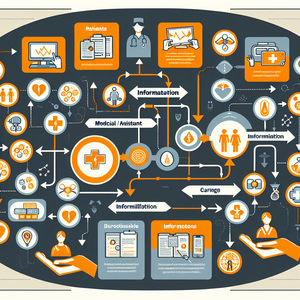
Navigating the Exciting World of Clinical Informatics and Digital Transformation: Top 15 Career Opportunities in Healthcare Technology
As technology continues to weave itself into the fabric of healthcare, the landscape is experiencing a remarkable transformation. This shift is not just about improving patient care; it's also unlocking a treasure trove of career opportunities in clinical informatics and digital transformation.
Job Summaries:
VP of Clinical Informatics (Data Products):
- At the forefront of healthcare innovation, the VP of Clinical Informatics develops and implements data-driven solutions tailored for clinical settings.
- This role necessitates collaboration with various teams to ensure that data products align with clinical needs and adhere to regulations.
Clinical Data Analyst:
- Clinical Data Analysts are pivotal in translating complex healthcare data into actionable insights that guide clinical decisions.
- Collaborating with healthcare professionals, they identify trends and propose improvements to patient outcomes.
Digital Transformation Manager:
- Digital Transformation Managers spearhead the strategic implementation of digital technologies across healthcare organizations.
- They pinpoint opportunities for innovation and efficiency while leading teams to integrate systems that enhance patient experiences.
Clinical Informatics Specialist:
- Acting as a liaison between clinical practice and IT
- Evaluate workflows
- Propose solutions to enhance data collection
- Application in patient care
Health IT Project Manager:
- Health IT Project Managers take charge of implementing and upgrading health information systems.
- They oversee project scopes, timelines, and budgets.
- They ensure alignment with clinical and operational needs.
Data Scientist in Healthcare:
- Employing advanced analytics and machine learning
- Data Scientists extract meaningful insights from intricate datasets
- Directly impacting clinical decisions
- Operational efficiency
Health Information Manager:
- Health Information Managers are responsible for overseeing patient data management.
- They manage health records.
- They ensure compliance with regulations.
- They safeguard patient privacy.
Clinical Software Developer:
- Clinical Software Developers create and implement software solutions
- Facilitate healthcare functions
- Examples include electronic health records
Biomedical Informatics Researcher:
- Advancing healthcare informatics through rigorous research
- Biomedical Informatics Researchers explore data utilization in clinical settings.
User Experience (UX) Designer in Healthcare:
- Focusing on user-friendly interfaces for health technology applications
- UX Designers aim to enrich user satisfaction.
Population Health Analyst:
- Population Health Analysts delve into data to uncover health trends and disparities within communities.
- They shape public health strategies.
Clinical Risk Manager:
- Clinical Risk Managers evaluate and mitigate risks in clinical settings.
- They analyze data to identify potential hazards.
- They develop patient safety strategies.
Data Governance Officer:
- Data Governance Officers formulate policies for healthcare data management
- Ensuring compliance with regulations.
Telehealth Program Manager:
- Telehealth Program Managers oversee the launch and operation of telehealth services
- Ensuring they meet the requirements of patients and providers alike.
Healthcare Business Analyst:
- Healthcare Business Analysts scrutinize data and processes
- Pinpoint areas for improvement within healthcare organizations.
These roles illustrate the growing intersection of healthcare and technology, highlighting the diverse career paths emerging in this dynamic field. As the demand for skilled professionals continues to surge, those interested in clinical informatics and digital transformation should be aware of job prospects, average salaries, and the qualifications needed to succeed.
Explore More Jobs

